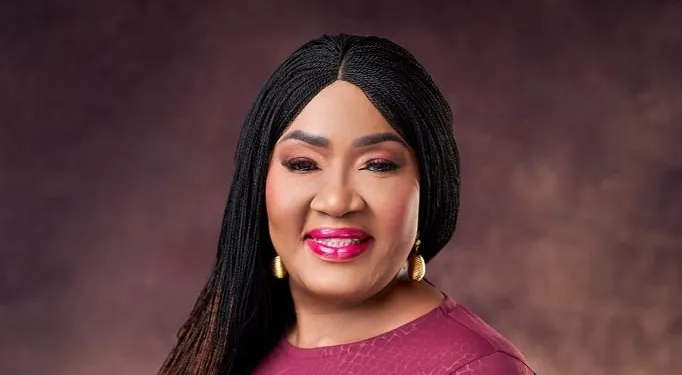Make history with female running mate – Groups tell Bawumia
As Ghana prepares for upcoming elections, the spotlight remains on the choices made by political parties regarding their leadership structures. With women constituting a significant portion of the electorate, their voices and preferences are poised to shape the political landscape in the days ahead.
Ghana’s political history could potentially be rewritten. as researchers and women groups outside and within the New Patriotic Party (NPP) are Intensifying their calls on the flagbearer of the governing party, Dr. Mahamudu Bawumia, to consider nominating a female running mate for the 2024 general election.
This, according to groups like FIDA-Ghana and Queen Mothers, could pave the way for Ghana to witness its first female vice president as the main opposition National Democratic Congress (NDC) has already nominated a female, Prof. Naana Jane OpokuAgyemang as running mate to its flagbearer, John Dramani Mahama.
If Dr. Bawuia also picks a female running mate, it will mark a significant milestone 67 years after Ghana gained independence.
Two prominent female stalwarts who have emerged as frontrunners to partner with the NPP’s flagbearer are Madam Irene Naa Torshie Addo and Akoua Frema Osei-Opare.
However, Naa Torshie Addo is said to be ahead as she is younger, highly vibrant and extremely connected to the Christian community in the country.
As the selection process unfolds amidst fervent lobbying, proponents argue that it’s imperative for Ghana, as a beacon of democracy, to break the gender barrier at the highest levels of leadership.
Ghana’s demographic landscape continues to showcase a notable gender skew, with provisional results from the 2021 Population and Housing Census (PHC) revealing a significant surplus of females over males.
According to the latest data, Ghana boasts approximately 400,000 more females than males, with the female population constituting 50.7% of the total populace, while males make up 49.3%.
The census data indicates that there are approximately 15.6 million females compared to 15.2 million males in the country, highlighting a consistent trend of a female majority within the population.
This gender disparity underscores the significant influence women hold in shaping the socio-political landscape of Ghana.
In the realm of politics, the selection of a female running mate by the opposition National Democratic Congress (NDC) has sparked discussions among political analysts and observers.
With the NDC’s move to embrace gender diversity in its leadership structure, attention has now turned to the governing NPP, with expectations mounting for them to follow suit.
Political watchers assert that the NPP’s decision regarding its choice of a running mate holds considerable importance, particularly in light of the country’s female-majority population.
By selecting a female running mate, the NPP could potentially tap into a significant voter demography and enhance its appeal to female voters across the nation.
Precedent
The precedent set by the NDC underscores the growing recognition of the pivotal role women play in Ghana’s political arena.
As political parties strive to broaden their support base and appeal to diverse segments of the population, addressing gender representation becomes increasingly crucial.
The NPP’s response to the call for a female running mate is eagerly anticipated, with many viewing it as a strategic move not only to attract female voters but also to demonstrate a commitment to gender equality and inclusivity in governance.
Ghana currently lags behind in terms of female representation in executive positions, both nationally and continentally.
Examples elsewhere
While several African countries have seen women ascend to the presidency or vice presidency individually, none have simultaneously had both positions occupied by women.
In the case of presidents, notable examples include Joyce Banda in Malawi, Ellen Johnson Sirleaf in Liberia, Ameenah Gurib-Fakin in Mauritius, Sahle Work Zewde in Ethiopia, and Elisabeth Domitien in the Central African Republic, among others.
Reflecting on the broader African context, women have made significant strides in political leadership across the continent Countries such as Burundi Rwanda, Senegal São Tomé and Principe, Mozambique, Mali, Namibia, and Tanzania have all seen women hold presidential positions.
Additionally, numerous nations including The Gambia, Tanzania, Zambia, and Liberia, have had female vice-presidents.
Not symbolism
The call for a female running mate in Ghana is not merely about symbolism but is rooted in the broader agenda of women’s empowerment.
Advocates argue increasing women’s representation in political leadership is vital for Africa’s socio-economic development, offering a pathway to combat poverty and disease.
While Ghana has seen women occupy significant positions in various professional fields, including education, sports, business, politics, fashion, and music, the political arena still presents challenges.
Despite these hurdles, the precedent set by other African nations underscores the potential for Ghana to embrace gender diversity in its highest echelons of power
Gender parity
As the NPP weighs its decision, the selection of a female running mate could signal a progressive step towards gender equality and inclusive governance in Ghana, potentially reshaping the country’s political landscape for generations to come.
As Ghana prepares for upcoming elections, the spotlight remains on the choices made by political parties regarding their leadership structures.
With women constituting a significant portion of the electorate, their voices and preferences are poised to shape the political landscape in the days ahead.
Source:mypublisher24


